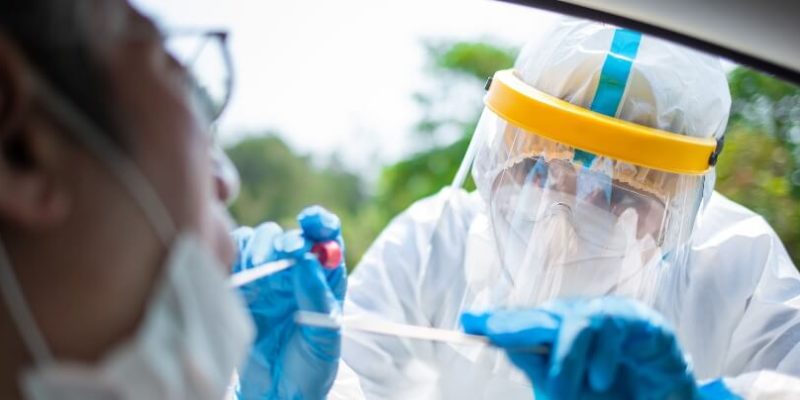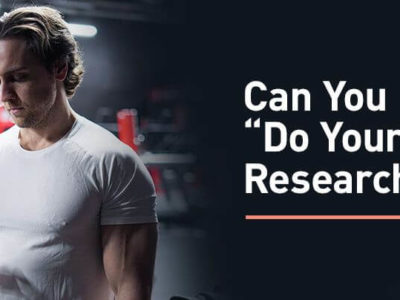
One of the most perplexing aspects of the Covid pandemic has been attempting to understand how dangerous it is for different cohorts of people.
Early on, many health experts claimed that contracting Covid was perilous for just about everyone, including young, healthy people and small children. The media seized on this opportunity to spread fear, uncertainty, and doubt and began spotlighting stories of outlier cases where the virus mauled or killed “perfectly healthy” teens and 20-somethings.
It wasn’t long, however, before health officials began to realize that the elderly and infirm were most vulnerable, but by then, the narrative had already been established: Covid poses a grave danger to us all.
Does the data support such a story?
Scientists have been studying Covid for nearly a year and a half now, and the weight of the evidence has been moving in another direction: Some people have good reason to be concerned about getting Covid and some people don’t. And that’s what you’re going to learn about in this article.
Before I venture further, though, let me say this:
If you’ve lost someone due to Covid, please don’t take my analysis as callous disregard for your circumstances. I understand that no amount of numbers and facts matter when you’re dealing with personal tragedy.
Also, allow me to stake out my position:
- While Covid is much more dangerous for some people than others, I fully support taking common sense measures to avoid spreading the virus to at-risk folks. Hand washing, social distancing, self-quarantining after travel and when sick, and so forth all make sense to me for those in contact with at-risk people.
- I don’t give a fig about Covid when it comes to my personal health.
Keep reading to understand how I’ve come to these conclusions.
How Bad Is COVID-19 for Healthy People?
When Covid first surfaced, many were quick to predict the worst. For instance, a widely circulated study published on March 16, 2020 by scientists at the Imperial College London estimated that over two million people would die in the United States and over half a million in the UK.
Although this paper has since been widely discredited as wildly inaccurate, many people are still under the impression that Covid has been far more deadly than the data shows—largely thanks to the relentless hysterics of the media, politicians, and celebrities.
For instance, according to a report published in July of last year, the average Briton thought that 7 percent of the population had already been killed by the virus (and 10 percent for the average Scot). Now, nearly a year later, the official number of deaths in the UK is 128,000, or about 0.2 percent of the population.
(Also, ironically, the author of the Imperial College London report, Neil Ferguson, resigned several months later after he was caught flouting the same lockdown measures he was championing to hump his married lover. Rules are for thee, but not for me, peasants.)
So, at this point, how dangerous is Covid, really?
One way to quantify the risk is known as the infection fatality ratio (IFR), which is the percentage of people who contract the disease and die, including both symptomatic and asymptomatic cases.
Estimates of Covid’s IFR vary widely. A recent study published by scientists at Stanford University figured it as low as 0.15 percent, recent data from the CDC reckoned it could be as high as 2 or 3 percent, and a report from the Imperial College London measured it around 1 percent.
Why the disparities? To quote David Spiegelhalter, chair of the Winton Centre for Risk and Evidence Communication at Cambridge University: “It’s very difficult to estimate mortality risk when you have something that varies at least by over 1000-fold depending on your age or risk factors. The average is pretty pointless.”
Read that again, because what many people don’t understand about Covid’s IFR is it differs greatly among people of different ages, lifestyles, and health statuses.
For example, according to the CDC’s current best estimate scenario, for people aged 0-to-17, the IFR is 20/1,000,000, or 0.002 percent, and for people aged 18-to-49, 500/1,000,000, or 0.05 percent. The risk of death then jumps sharply for people aged 50-to-64: 6,000/1,000,000 or 0.6 percent, and then grows by a factor of 15 for those over 65: 90,000/1,000,000 or 9 percent.
If you dig into the data further, though, you learn that even among the elderly, age doesn’t seem to be the chief predictor of the severity of Covid.
According to a new report from the CDC, about 78 percent of the people who were hospitalized, placed on a ventilator, or died from Covid were overweight (27.8 percent) or obese (50.2 percent). Another study conducted by scientists at Oxford University found that overweight and obese people had a 92 percent higher risk of dying from Covid compared to people with a healthy BMI.
Interestingly, the CDC also observed that people under 65 who were underweight had a 41 percent higher risk of being hospitalized than those with a healthy weight.
Comorbidities also bulk large in the pandemic, with the CDC reporting that 94 percent of patients who died from Covid had complicating conditions (and just 6 percent with Covid as the only cause). The most common comorbidities appear to be hypertension, obesity, diabetes and kidney disease.
Physical activity levels inform the matter, too, as demonstrated by a study conducted by scientists at Kaiser Permanente. The researchers found that patients with Covid who were “consistently inactive” before becoming infected were 226 percent more likely to be hospitalized, 173 percent more likely to be admitted to an intensive care unit (ICU), and 149 percent more likely to die than those who exercised at least 150 minutes per week.
Logically, then, if I were going to worry about what Covid could do to me, actuarial data shows that I’d also have to worry about everyday “hazards” that we all brave like a daily 10-to-80-mile commute or 30-to-45-minute walk in a busy city.
Or to look at it another way, if I told you that I was scared of driving or walking around every day, how would you respond? You’d probably try to explain how the risk posed by those activities is so small that it doesn’t even warrant concern.
The same rationale should be applied to Covid when the circumstances support it.
Last year, Professor Spiegelhalter echoed this position when he performed a statistical analysis to determine whether catching Covid was more dangerous than the other myriad risks we face in the course of our lives. He determined that if you get Covid, your risk of dying is about the same as it would be over the coming 12 months anyway.
What’s more, since that analysis was conducted, Covid’s death rate has fallen precipitously because of a number of factors, including better hospital treatment and possibly the transmission of smaller viral loads what with all the antiviral measures in place. As a result, Professor Spiegelhalter now forecasts that catching coronavirus gives you about six-to-nine months’ worth of risk of dying, rather than a whole year’s worth.
While concentrating the chances of dying over the course of several months into several weeks may sound scary, think of it this way: If that meant increasing your risk of death from, say, 0.001 to 0.002 percent, that’s a 100 percent lift, but is it meaningful? Do you even care?
What About “Long Covid?”
Some people will concede that for most of us, the chances of dying from Covid are vanishingly small, but they’re still concerned about the potential for lingering effects, or what some have dubbed “long Covid.” To support their position, they often point to data that suggests that as many as one third of people who get Covid experience symptoms for longer than the usual two weeks.
As with the infection fatality ratio, though, God’s in the details, and they indicate that the risk of becoming a “long hauler” is also exceedingly low if you’re a healthy person.
For instance, according to a study conducted by scientists at King’s College London, only 13 percent of Covid patients had symptoms lasting for at least 4 weeks, 4.5 percent stayed ill for 8 weeks, and a mere 2.3 percent suffered for longer than 12 weeks.
Unsurprisingly, the researchers also found that older people are much more likely to get long Covid than younger people, and as expected, body weight also came into play—people with long Covid also had a higher average BMI than those whose symptoms resolved more quickly. Let’s remember, too, that as higher physical activity levels are associated with a lower risk of hospitalization and Covid symptoms, they’re also associated with a lower risk of long Covid.
It’s also worth noting that the persistence of a respiratory tract infection is hardly unique to Covid. In fact, it happens even more frequently with the flu—according to 2015 research, about 10 percent of people who get the flu are still sick after 14 days.
All this is to say: if you’re a relatively young (<50), healthy, active person at a healthy body weight, your chances of dealing with long Covid are quite low.
What About Asymptomatic Spread?
“Fine,” you may be thinking, “maybe my risk of suffering from Covid is low, but what about the people around me? What if I get someone else sick?”
I admire your altruism, and it goes without saying that if you’re in close contact with an at-risk person, you should take special precautions for their sake.
If you listen to many Covid alarmists, though, asymptomatic carriers of the virus are everywhere and all but guaranteed to pass it to everyone they closely interact with. Such sensationalism has been used to sell lockdowns, travel restrictions, mask mandates, and the rest of it, but the latest data shows that the specter of asymptomatic spread has been puffed up out of all proportion.
You can actually estimate your risk of becoming a “silent spreader” in your household, for example, with simple math. Here’s the process:
1. Calculate your chances of becoming an asymptomatic carrier by multiplying the probability of getting Covid by the probability of being asymptomatic (which is about 17 percent according to a recent meta-analysis).
So, let’s say you have a 10 percent risk of catching Covid over the next year (it could be higher or lower, of course). You’d multiply 0.1 (your risk of catching Rona) by 0.17 (your risk of being asymptomatic), which equals 1.7 percent.
2. Calculate your chances of transmitting it to someone in your household by multiplying 1.7 percent by the likelihood of household transmission, which is about 16 percent according to one study published in January, 2021. In reality, it’ll almost certainly be lower because research shows that asymptomatic people specifically are about 80 percent less infectious than symptomatic cases. Additionally, households with young children are at a greater risk of passing the virus around, so that may increase or further decrease your numbers, but we’ll leave those factors out of our calculations.
So, what’s 16 percent of 1.7 percent? 0.3 percent. Or put differently, your chances of getting Covid, being asymptomatic, and giving it to someone in your household would be 1 in 368 if our math reflected reality. That means if you lived that year 368 times in a row on repeat, like a Monte Carlo simulation, you’d become an asymptomatic spreader and give Covid to someone in your household just once.
Now, you could argue that healthy, fit people are more likely to be asymptomatic, which is probably true, but even if this doubled your chances of being asymptomatic from, say, 17 to 34 percent, the risk of household transmission remains remarkably low (0.6 percent or 1 in 184).
You could also argue that other elements of my computations don’t reflect reality, or your reality, at least—maybe a 10 percent chance of getting Covid (which could be abstractly expressed as “quite unlikely”) over a year feels too generous given your lifestyle or the risk of transmission in your household is likely much higher than 16 percent for one explicit reason or another (six people living in a one-bed apartment or something).
All fine, but start working the numbers yourself, and you’ll quickly see that it’s exceedingly difficult to generate a plausible scenario where the absolute risk is alarmingly high.
“For My Personal Health? I Don’t Care About Covid.”
I’ve said that to scores of people over the last six months or so, and it has made for some rather amusing conversations.
After sharing more or less what I’ve laid out here, many people took my point (and some just took offense), but I was missing a string from my rhetorical bow: my argument hadn’t been put to the acid test yet because, to my knowledge, I hadn’t gotten Covid yet (no sickness or testing since the pandemic began).
And then, I finally got the Cove, as confirmed by an antibody test.
Astonishingly, it presented exactly as the data predicted—a few days of mild congestion. Easy antibodies, basically, and according to recent research, maybe even significant levels of immunity for the rest of my life.
I shared my experience on my podcast, and although I specifically stated that I was talking about my personal health and nothing else (giving it to others, for instance), some listeners with selective hearing claimed I was downplaying the pandemic and encouraging people to throw caution to the wind.
These were basically nonsequitur ad hominem attacks spiced with a dash of strawman because, again, my flippant attitude wasn’t generally toward Covid but only its relevance to my personal health.
Moreover, I also explained that I’ll continue to take precautions to not get others sick including good personal hygiene, avoiding contact with sick people, quarantining when sick, etc., and in support of that, I shared how I dealt with my spell of Covid: I noticed a little congestion one evening, got tested two days later (when it wasn’t going away), and then quarantined for 2 weeks (3-to-4 days of symptoms and 9 days of no symptoms) and followed it up with a PCR test to confirm I was no longer carrying a meaningful viral load.
I then followed that podcast episode up with another one that more or less mirrored the information in this article, and while I didn’t receive any static for it, I’ve realized something:
For some people who haven’t experienced any personal tragedy (loss of a loved one, for instance), angsting over the virus has become part and parcel of their identity.
They’ve spent the last year mostly in front of their TVs hyperventilating through two masks, and now they’re supposed to swallow that it was mostly for naught? That they were bamboozled by incompetent health authorities and mercenary media corporations? That their Covid complex is no longer heroic?
Well, as . . . someone . . . once said: it’s easier to fool people than to convince them that they have been fooled.
And thus, I give you: The Forever Maskers. Yes, Covid is now a cult.
If only benevolent aliens would deign to colonize this wackadoodle planet.
What’s your take on Covid? Have anything else to share? Let me know in the comments section below!
+ Scientific References
- Callaway, E. (2021). Had COVID? You’ll probably make antibodies for a lifetime. Nature. https://doi.org/10.1038/d41586-021-01442-9
- Havers, F. P., Reed, C., Lim, T., Montgomery, J. M., Klena, J. D., Hall, A. J., Fry, A. M., Cannon, D. L., Chiang, C. F., Gibbons, A., Krapiunaya, I., Morales-Betoulle, M., Roguski, K., Rasheed, M. A. U., Freeman, B., Lester, S., Mills, L., Carroll, D. S., Owen, S. M., … Thornburg, N. J. (2020). Seroprevalence of Antibodies to SARS-CoV-2 in 10 Sites in the United States, March 23-May 12, 2020. JAMA Internal Medicine, 180(12), 1776–1786. https://doi.org/10.1001/jamainternmed.2020.4130
- Li, F., Li, Y. Y., Liu, M. J., Fang, L. Q., Dean, N. E., Wong, G. W. K., Yang, X. B., Longini, I., Halloran, M. E., Wang, H. J., Liu, P. L., Pang, Y. H., Yan, Y. Q., Liu, S., Xia, W., Lu, X. X., Liu, Q., Yang, Y., & Xu, S. Q. (2021). Household transmission of SARS-CoV-2 and risk factors for susceptibility and infectivity in Wuhan: a retrospective observational study. The Lancet Infectious Diseases, 21(5), 617–628. https://doi.org/10.1016/S1473-3099(20)30981-6
- Byambasuren, O., Cardona, M., Bell, K., Clark, J., McLaws, M. L., & Glasziou, P. (2020). Estimating the extent of asymptomatic COVID-19 and its potential for community transmission: Systematic review and meta-analysis. Journal of the Association of Medical Microbiology and Infectious Disease Canada, 5(4), 223–234. https://doi.org/10.3138/jammi-2020-0030
- Petrie, J. G., Caroline Cheng, Ryan E. Malosh, Jeffrey J. VanWormer, Brendan Flannery, Richard K. Zimmerman, Manjusha Gaglani, Michael L. Jackson, Jennifer P. King, & Mary Patricia Nowalk. (n.d.). Illness Severity and Work Productivity Loss Among Working Adults With Medically Attended Acute Respiratory Illnesses: US Influenza Vaccine Effectiveness Network 2012–2013 | Clinical Infectious Diseases | Oxford Academic. Retrieved June 4, 2021, from https://academic.oup.com/cid/article/62/4/448/2463108
- Sudre, C. H., Murray, B., Varsavsky, T., Graham, M. S., Penfold, R. S., Bowyer, R. C., Pujol, J. C., Klaser, K., Antonelli, M., Canas, L. S., Molteni, E., Modat, M., Jorge Cardoso, M., May, A., Ganesh, S., Davies, R., Nguyen, L. H., Drew, D. A., Astley, C. M., … Steves, C. J. (2021). Attributes and predictors of long COVID. Nature Medicine, 27(4), 626–631. https://doi.org/10.1038/s41591-021-01292-y
- Sallis, R., Young, D. R., Tartof, S. Y., Sallis, J. F., Sall, J., Li, Q., Smith, G. N., & Cohen, D. A. (2021). Physical inactivity is associated with a higher risk for severe COVID-19 outcomes: A study in 48 440 adult patients. British Journal of Sports Medicine, 0, 1–8. https://doi.org/10.1136/bjsports-2021-104080
- Williamson, E. J., Walker, A. J., Bhaskaran, K., Bacon, S., Bates, C., Morton, C. E., Curtis, H. J., Mehrkar, A., Evans, D., Inglesby, P., Cockburn, J., McDonald, H. I., MacKenna, B., Tomlinson, L., Douglas, I. J., Rentsch, C. T., Mathur, R., Wong, A. Y. S., Grieve, R., … Goldacre, B. (2020). Factors associated with COVID-19-related death using OpenSAFELY. Nature, 584(7821), 430–436. https://doi.org/10.1038/s41586-020-2521-4
- Ioannidis, J. P. A. (2021). Reconciling estimates of global spread and infection fatality rates of COVID-19: An overview of systematic evaluations. In European Journal of Clinical Investigation (Vol. 51, Issue 5). Blackwell Publishing Ltd. https://doi.org/10.1111/eci.13554
- Neil M Ferguson, Daniel Laydon, Gemma Nedjati-Gilani, Natsuko Imai, Kylie Ainslie, Marc Baguelin, Sangeeta Bhatia, Adhiratha Boonyasiri, Zulma Cucunubá, Gina Cuomo-Dannenburg, Amy Dighe, Ilaria Dorigatti, Han Fu, Katy Gaythorpe, Will Green, Arran Hamlet, Wes Hinsley, Lucy C Okell, Sabine van Elsland, … Azra C Ghani. (n.d.). Report 9: Impact of non-pharmaceutical interventions (NPIs) to reduce COVID-19 mortality and healthcare demand. Retrieved June 4, 2021, from https://www.imperial.ac.uk/media/imperial-college/medicine/sph/ide/gida-fellowships/Imperial-College-COVID19-NPI-modelling-16-03-2020.pdf
If you enjoyed this article, get weekly updates. It’s free.
Sending…
Great! You’re subscribed.
100% Privacy. We don’t rent or share our email lists.





